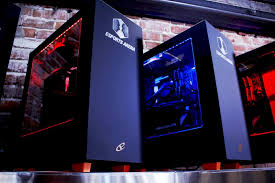In the ever-evolving world of gaming, having a high-performance gaming PC can make all the difference between victory and defeat. However, the cost of cutting-edge gaming rigs can be substantial, often putting them out of reach for many enthusiasts. This comprehensive guide will explore various strategies and options for financing your dream gaming PC, ensuring you can enjoy the latest titles without breaking the bank.
Understanding the Cost of a Gaming PC
Before diving into financing options, it’s crucial to understand what contributes to the cost of a gaming PC. High-end gaming rigs can range from $1,000 to $5,000 or more, depending on the components and peripherals included. Here’s a breakdown of the main components and their typical price ranges:
- Processor (CPU): $200 – $1,000+
- Graphics Card (GPU): $300 – $2,000+
- Motherboard: $100 – $500+
- RAM: $50 – $200+
- Storage (SSD/HDD): $50 – $300+
- Power Supply: $50 – $200+
- Case: $50 – $300+
- Cooling System: $30 – $200+
- Monitor: $200 – $1,000+
- Peripherals (Keyboard, Mouse, Headset): $100 – $500+
According to a 2023 survey by PC Gamer, the average cost of a high-end gaming PC build was approximately $2,500. However, it’s important to note that a well-balanced mid-range system can still provide an excellent gaming experience for around $1,000 to $1,500.
Assessing Your Gaming Needs and Budget
Before exploring financing options, it’s essential to assess your gaming needs and establish a realistic budget. Consider the following factors:
- Types of Games: Different genres have varying hardware requirements. For example, competitive esports titles like Counter-Strike: Global Offensive or League of Legends can run well on mid-range systems, while graphically intensive games like Cyberpunk 2077 or Red Dead Redemption 2 demand more powerful hardware.
- Resolution and Frame Rate: Higher resolutions (1440p or 4K) and frame rates (144Hz or 240Hz) require more powerful components, particularly the GPU.
- Future-Proofing: Consider whether you want to invest in a system that will remain capable of running new games for several years or if you’re comfortable with upgrading more frequently.
- Non-Gaming Uses: If you plan to use the PC for other tasks like video editing or 3D rendering, you may need to allocate more budget for the CPU and RAM.
- Upgrade Path: Some components, like the motherboard and power supply, can affect your ability to upgrade in the future. Investing in quality parts in these areas can save money in the long run.
Once you’ve assessed your needs, establish a target budget range. Be realistic about what you can afford, considering both upfront costs and potential financing charges. Remember, it’s often better to start with a balanced mid-range system that you can afford rather than overextending yourself financially for top-tier components.
Traditional Financing Options
When it comes to financing your gaming PC, several traditional options are available. Let’s explore each in detail:
1. Personal Loans
Personal loans from banks or credit unions can be an excellent option for financing a gaming PC. These loans typically offer:
- Fixed interest rates
- Set repayment terms (usually 1-5 years)
- No collateral required (for unsecured loans)
Pros:
- Potentially lower interest rates compared to credit cards
- Fixed monthly payments for easier budgeting
- Opportunity to build credit history
Cons:
- May require good to excellent credit for the best rates
- Some loans may have origination fees
- Interest charges can add significantly to the overall cost
Case Study: John, a 28-year-old software developer, secured a $2,000 personal loan at 8% APR for 24 months to finance his gaming PC. His monthly payment was $90.16, and he paid a total of $2,163.84 over the life of the loan, including $163.84 in interest.
2. Credit Cards
Credit cards offer a convenient way to finance a gaming PC, especially if you can take advantage of promotional offers.
Pros:
- Immediate purchasing power
- Potential for rewards or cashback
- Some cards offer 0% APR introductory periods
Cons:
- High interest rates after promotional periods end
- Risk of accumulating long-term debt
- Potential impact on credit utilization ratio
Tip: If using a credit card, look for ones offering 0% APR on purchases for an extended period (12-18 months). Be sure to pay off the balance before the promotional period ends to avoid high interest charges.
3. Store Financing
Many electronics retailers and PC component stores offer their own financing options, often through partnered financial institutions.
Pros:
- Convenient application process at point of sale
- May offer promotional periods with low or 0% interest
- Can sometimes bundle components and peripherals into a single financing package
Cons:
- Interest rates may be higher than personal loans after promotional periods
- May require opening a new credit account
- Terms can be complex, with potential for deferred interest
Example: Best Buy offers financing through their store credit card, with options like 12-month financing on purchases over $299 or 18-month financing on purchases over $599.
4. Rent-to-Own or Lease-to-Own Programs
Some companies offer rent-to-own or lease-to-own programs for gaming PCs.
Pros:
- Low upfront costs
- Flexibility to upgrade or return the system
- May be easier to qualify for than traditional loans
Cons:
- Higher total cost over time
- Risk of repossession if payments are missed
- May not build equity in the system until the end of the term
Caution: While these programs can be tempting due to their low upfront costs, they often result in paying significantly more for the PC over time. Carefully review the terms and total cost before committing.
Alternative Financing Strategies
Beyond traditional financing options, several alternative strategies can help you afford your dream gaming PC:
1. Layaway Programs
Some retailers offer layaway programs where you can reserve a PC or components and make payments over time before taking possession.
Pros:
- No interest charges
- Allows you to lock in prices on components
- Helps with budgeting and saving
Cons:
- May require a down payment
- Longer wait time to receive your PC
- Limited flexibility once the layaway is initiated
2. Peer-to-Peer Lending
Platforms like Prosper or LendingClub connect borrowers with individual lenders, often offering competitive rates.
Pros:
- Potentially lower interest rates than traditional loans
- More flexible lending criteria
- Quick application and funding process
Cons:
- Interest rates can still be high for borrowers with lower credit scores
- May charge origination fees
- Limited loan amounts
3. Buy Now, Pay Later Services
Services like Affirm, Klarna, or Afterpay offer short-term financing options for online purchases.
Pros:
- Quick approval process
- Often interest-free if paid within a specific timeframe
- Allows for splitting the cost into manageable installments
Cons:
- Can encourage overspending
- May charge high interest rates if not paid on time
- Potential impact on credit score
Example: Affirm partners with various PC component retailers, offering financing options like “4 interest-free payments” or longer terms with interest rates based on creditworthiness.
4. Save and Build Incrementally
While not a financing option per se, saving up and building your PC incrementally can be a financially prudent approach.
Pros:
- Avoid interest charges and debt
- Allows for taking advantage of sales and price drops
- Provides time to research and choose the best components
Cons:
- Longer wait time to complete your build
- Risk of compatibility issues if component standards change
- May miss out on bulk purchase discounts
Strategy: Start with essential components like the CPU, motherboard, and GPU. Use integrated graphics if possible while saving for a dedicated GPU. Add storage, RAM, and peripherals as budget allows.
Maximizing Value: Tips for Smart PC Financing
Regardless of the financing method you choose, these tips can help you maximize value and minimize costs:
- Compare Total Costs: When evaluating financing options, look at the total cost over time, not just monthly payments.
- Read the Fine Print: Be aware of all terms, conditions, and potential fees associated with financing offers.
- Improve Your Credit Score: A better credit score can lead to more favorable financing terms. Take steps to improve your score before applying for financing.
- Time Your Purchase: Look for sales events like Black Friday, Cyber Monday, or seasonal promotions to get the best deals on components.
- Consider Last-Gen Components: Often, you can find great deals on slightly older components that still offer excellent performance.
- Balance Performance and Cost: Focus on components that offer the best performance for your specific needs and budget.
- Plan for the Future: Invest in a quality power supply and motherboard to support future upgrades.
- Explore Refurbished or Open-Box Options: These can offer significant savings, often with warranties comparable to new products.
The Impact of Financing on Your Financial Health
While financing can make a high-end gaming PC more accessible, it’s crucial to consider the broader impact on your financial health:
Budgeting Considerations
Before committing to any financing option, ensure that the payments fit comfortably within your monthly budget. Financial experts often recommend that non-essential expenses like gaming should not exceed 5-10% of your after-tax income.
Credit Score Implications
Financing a gaming PC can affect your credit score in several ways:
- New Credit Inquiries: Applications for loans or credit cards can temporarily lower your credit score.
- Credit Utilization: Using a significant portion of your available credit for a PC purchase can negatively impact your credit score.
- Payment History: Consistent, on-time payments can positively affect your credit score over time.
Opportunity Cost
Consider what else you could do with the money you’ll spend on financing charges. Could it be better used for savings, investments, or other financial goals?
Long-Term Financial Goals
Ensure that financing a gaming PC aligns with your broader financial objectives. While gaming is a valuable hobby, it shouldn’t come at the expense of essential financial priorities like emergency savings or retirement planning.
Case Studies: Real-World Gaming PC Financing Scenarios
To illustrate different approaches to financing a gaming PC, let’s look at three hypothetical case studies:
Case Study 1: The Incremental Builder
Sarah, a college student with a part-time job, decided to build her gaming PC incrementally over six months.
- Strategy: She saved $200 per month and purchased components during sales events.
- Result: Sarah completed her $1,200 mid-range build without incurring any debt, taking advantage of several promotional offers along the way.
- Lesson: Patience and planning can lead to a debt-free gaming PC, ideal for those with consistent but limited income.
Case Study 2: The 0% APR Optimizer
Mark, a young professional, used a credit card with a 0% APR introductory offer to finance his $2,500 high-end gaming rig.
- Strategy: He put the entire purchase on the card and set up a budget to pay it off within the 15-month promotional period.
- Result: Mark paid off the balance two months early, avoiding all interest charges and earning cashback rewards on his purchase.
- Lesson: 0% APR offers can be powerful tools when used responsibly, but require discipline and a solid repayment plan.
Case Study 3: The Personal Loan Approach
Lisa, a freelance graphic designer, took out a $3,000 personal loan to finance a high-performance gaming and work PC.
- Strategy: She secured a 3-year loan at 7.5% APR and made consistent monthly payments.
- Result: Lisa paid a total of $3,353 over the life of the loan, including $353 in interest, but was able to start using her PC for both gaming and work immediately.
- Lesson: Personal loans can offer a structured repayment plan with potentially lower interest rates than credit cards, but it’s important to shop around for the best terms.
The Future of Gaming PC Financing
As the gaming industry continues to evolve, so too will the options for financing gaming PCs. Here are some trends to watch:
- Subscription-Based Hardware: Some companies are exploring subscription models where users pay a monthly fee for regularly upgraded gaming hardware.
- Cloud Gaming Services: As cloud gaming technology improves, it may reduce the need for high-end local hardware, potentially changing the financing landscape.
- Cryptocurrency and Blockchain: Some retailers are beginning to accept cryptocurrency payments, and blockchain technology could lead to new decentralized financing options.
- AI-Powered Financial Products: Advanced AI could lead to more personalized and flexible financing options based on individual gaming habits and financial situations.
- Eco-Friendly Financing: As sustainability becomes more important, we may see financing options that incentivize energy-efficient components or offer better terms for upgrades that reduce e-waste.
Balancing Passion and Financial Responsibility
Financing a gaming PC is about finding the right balance between your gaming aspirations and financial realities. By understanding the various financing options available, assessing your needs, and planning carefully, you can build the gaming rig of your dreams without compromising your financial health.
Remember, the goal is not just to acquire a powerful gaming PC, but to do so in a way that enhances your gaming experience without causing financial stress. Whether you choose to save up and build incrementally, leverage 0% APR offers, or opt for a personal loan, the key is to make an informed decision that aligns with your overall financial goals.
As you embark on your journey to finance your dream gaming PC, keep these key takeaways in mind:
- Thoroughly assess your gaming needs and set a realistic budget.
- Compare multiple financing options, looking at the total cost over time.
- Read the fine print and understand all terms and conditions.
- Consider the impact on your credit score and overall financial health.
- Look for opportunities to save money through sales, refurbished parts, or incremental building.
- Stay informed about emerging financing trends and technologies in the gaming industry.
By approaching the financing of your gaming PC with the same strategy and thoughtfulness you apply to your favorite games, you’ll be well-equipped to make decisions that keep both your gaming setup and your finances in top form. Happy gaming, and may your frames be high and your temperatures low!



